Benin, Togo and Ghana tours
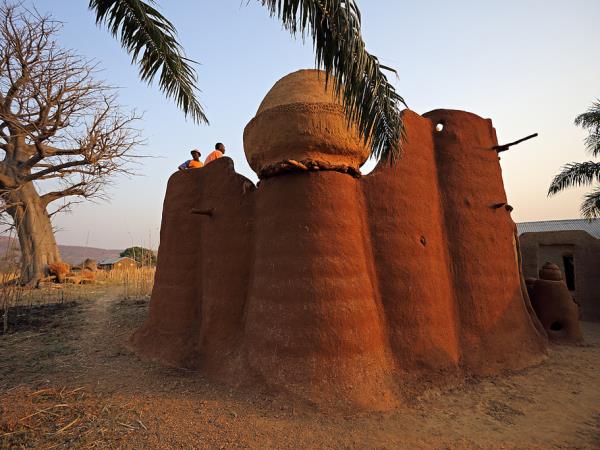
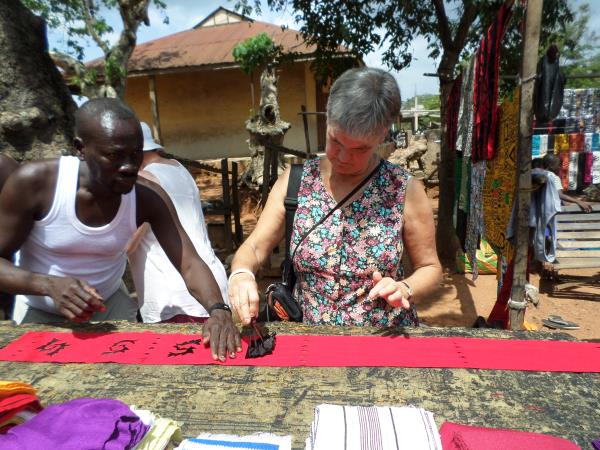
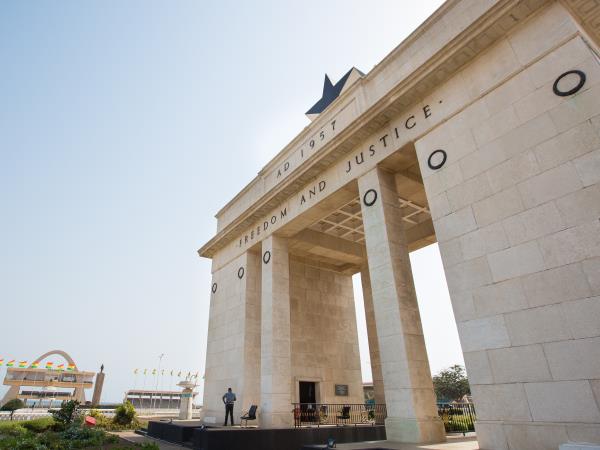
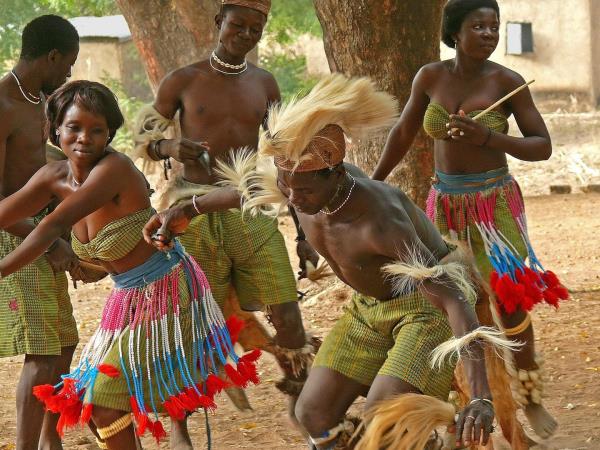
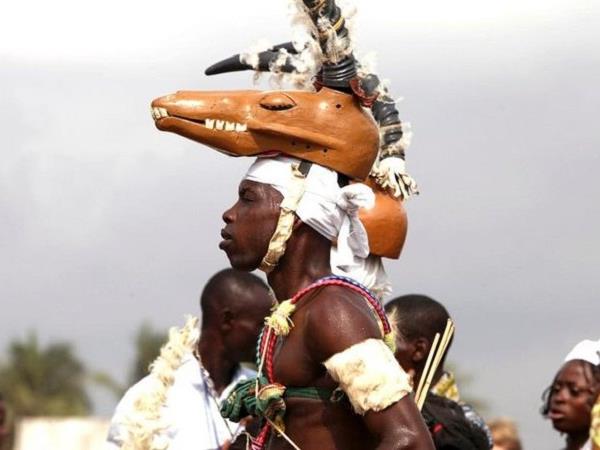
Description of Benin, Togo and Ghana tours
Check dates
2024: 12 Feb, 26 Feb, 11 Mar, 25 Mar, 8 Apr, 22 Apr, 6 May, 20 May, 3 Jun, 17 Jun, 1 Jul, 15 Jul, 29 Jul, 12 Aug, 26 Aug, 9 Sep, 23 Sep, 7 Oct, 21 Oct, 4 Nov, 18 Nov
2025: 1 Jan, 15 Jan, 29 Jan, 12 Feb, 26 Feb, 12 Mar, 26 Mar, 9 Apr, 23 Apr, 7 May, 21 May, 4 Jun, 18 Jun, 2 Jul, 16 Jul, 30 Jul, 13 Aug, 27 Aug, 10 Sep, 24 Sep, 8 Oct, 22 Oct, 5 Nov, 19 Nov, 3 Dec, 17 Dec, 31 Dec
2025: 1 Jan, 15 Jan, 29 Jan, 12 Feb, 26 Feb, 12 Mar, 26 Mar, 9 Apr, 23 Apr, 7 May, 21 May, 4 Jun, 18 Jun, 2 Jul, 16 Jul, 30 Jul, 13 Aug, 27 Aug, 10 Sep, 24 Sep, 8 Oct, 22 Oct, 5 Nov, 19 Nov, 3 Dec, 17 Dec, 31 Dec
Travel guides
West Africa is a place where darkness and light sit side by side, balancing, complementing and creating an intriguing mix of culture and history that ...
A man hammers a wooden peg into a shrine hung with charred animal bones and anoints it with oil. In Benin, magic is underway: not a performance, but t...
Responsible Travel
As the pioneers of responsible tourism, we've screened this (and every) vacation so that you can travel knowing it will help support the places and people that you visit, and the planet. Read how below.
Planet
On this tour, our travelers are oriented against contributing to the depletion of natural resources. They are encouraged not to buy souvenirs made from endangered species as well as deforestation. We encourage people to avoid foods such as bush meat as it is quite common to find antelope, porcupine or even monkey served in local restaurants popularly referred to as “chop bars” and tree species like mahogany, ebony and rosemary wood.In conjunction with our local team, we work with hotels and guesthouses to implement best practices when it comes to environmental matters. Most of these hotels are advised to use renewal energy as well as turning off lights and electrical appliances when not in use.
The houses in these communities are built with appropriate technology by using local materials such as clay which do not pose danger to the environment.
Participants on this trip are not allowed to litter the environment but are rather encouraged to sensitize the visited communities on environmental protection issues such as recycling of waste materials and water management by treating used water to make it appropriate for a specific end-use such as drinking, irrigation and river flow maintenance.
People
Most of the accommodations used on these trip are locally owned by the people in those destinations.This helps to give back to the communities something of monetary value and to ensure that our visit impact positively on those communities by patronizing local products produced within the community.
We are careful not to disrupt the traditional way of life of the people that we meet. As a way to say thank you for allowing us to visit, we bring traditional gifts, such as sugar, tea and so on – we do not bring modern accoutrements that may change their way of life as we feel that, it is important for all tribal groups that any move towards a more ‘modern’ lifestyle is made on their own terms and not imposed upon them.
In addition to using tour guides, we normally use community site guides to ensure that our travelers experience local lifestyle at the local communities. Communities we visit are the core of what we do on our trips.
We therefore ensure that our visits do not in any way infringe on the local customs and beliefs of the people. Using the local tour guides in this respect does not only contribute economically to the lives of the people but also helps in maintaining the culture of the people since they will always find a person of their own being in charge of our visits.
There is always pre-departure briefings to orientate travelers to respect the indigenes beliefs and customs. This is particularly relevant in some parts of Ghana, Togo and Benin where the indigenes are very reactive to photography. Although some may not want their photographs taken or ask for compensation for photography, many are happy with this but we think that it’s only fair to offer compensation when requested.
Popular similar vacations
Cultural history vacation in Ghana
From US $750 - US $3500 14 days excluding flights
Authentic Ghana Eco, Culture, History and Wildlife Tours
Transatlantic slave trade tour, Ghana
From US $1880 - US $3025 8 days excluding flights
Historical and cultural tour of Ghana
Ghana coastal trekking vacation, Cape Three Points
From £1261.02 10 days excluding flights
A unique tour with the opportunity to see amazing Ghana










